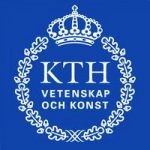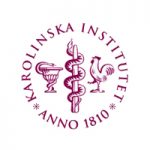项目介绍
To be a doctoral student means to devote oneself to a research project under supervision of experienced researchers and following an individual study plan. For a doctoral degree, the equivalent of four years of full-time doctoral education is required.
The research group
The Department of Molecular Medicine and Surgery (MMK) is looking for a curious and highly motivated Ph.D. student to join Dr. David Marlevi, Prof. David Nordsletten (University of Michigan), and Prof. Rebecka Hultgren to improve non-invasive prediction of complex vascular disease using a multidisciplinary combination of cardiovascular modelling, advanced image processing, and experimental clinical imaging. Based in clinically integrated, well-established larger network on cardiovascular imaging, as part of a broad-reaching European research initiative and in direct close collaboration with the Cardio Biomechanics Lab at the University of Michigan, you will join a diverse research team focussed on personalized cardiovascular care through the use of next-generation biomedical engineering.
The doctoral student project and the duties of the doctoral student
The overall goal of the project is to investigate hemodynamic and biomechanical features of aortic dissection growth, improving on current diagnostic paradigms for clinical risk prediction using multimodal image analysis. Aortic dissection is a life-threatening vascular disease where the aortic wall partially tears allowing blood to form a new cavity within the wall. Whilst most patients survive into a chronic phase, long-term survival remain low and an urgent need for personalized diagnostic measures exist. To approach this, our group have shown how novel medical imaging allow for interrogation of functional dissection behaviour going beyond current practice in assessing individual risk. In particular, through incorporation of fundamental fluid mechanical concepts and cardiovascular modelling principles, we have been exploring the concept of physics-based image analysis to extract functional information underpinning dissection risk, opening for novel diagnostic paradigms.
As a Ph.D. student you will continue these advancements by exploring and implementing methods to extract hemodynamic and biomechanical information of aortic dissection from clinical image data. This will include formulating the theoretical concepts of the methodologies, building cardiovascular models to validate approaches, and evaluating setups in clinically acquired image sets and patient cohorts. Based in a highly translational research environment, the Ph.D. project will entail aspects ranging from fluid mechanical theory, cardiovascular modelling, computational image analysis, to clinical vascular care; all seeking to translate physics-informed imaging tools into aortic dissection care.
The project is formulated as a direct collaboration between Karolinska Institutet (Dr. Marlevi; Prof. Hultgren) and the University of Michigan (Prof. Nordsletten), providing a unique environment for translating advanced bioengineering into clinical practice. Close interaction across both institutes are expected within the announced Ph.D. project.
As part of an individual research project, you will be responsible for setting up and evaluating computational and benchtop experiments, defining optimal patient studies, and write scientific articles to review and report the results of these experiments.
What do we offer?
As joint part of the Cardiovascular Magnetic Resonance Group and Vascular Surgery team, and with strong connection to the Cardio Biomechanics Lab at the University of Michigan, we offer a unique translational research environment with wide-ranging expertise spanning clinical science, biomedical engineering, and medical physics, all working together to improve vascular disease diagnostics. With the position part of a recently funded broad-reaching European research initiative for advanced hemodynamic imaging (the MultiPRESS project), the student will also be directly involved in cutting-edge data-driven image science, collaborating with international networks to push learned and physics-driven imaging into novel application areas. Herein, participation in international workshops and conferences, as well as potential research visits to collaborating sites will be included in the expected work. Further, being deeply integrated with the clinical activities at the Karolinska University Hospital, direct access to state-of-the-art imaging equipment, diverse patient cohorts, and relevant computational resources provide excellent opportunities for ground-breaking research.
On a larger scale, Karolinska Institutet is one of the world’s leading medical universities. Our vision is to pursue the development of knowledge about life and to promote a better health for all. At Karolinska Institutet, we conduct successful medical research and hold the largest range of medical education in Sweden. As a doctoral student you are offered an individual research project, a well-educated supervisor, a vast range of elective courses and the opportunity to work in a leading research group. Karolinska Institutet collaborates with prominent universities from all around the world, which ensures opportunities for international exchanges. You will be employed on a doctoral studentship which means that you receive a contractual salary. Employees also have access to our modern gym for free and receive reimbursements for medical care.
Eligibility requirements for doctoral education
In order to participate in the selection for a doctoral position, you must meet the following general (A) and specific (B) eligibility requirements at latest by the application deadline.
It is your responsibility to certify eligibility by following the instructions on the web page Entry requirements (eligibility) for doctoral education.
A) General eligibility requirementYou meet the general eligibility requirement for doctoral/third-cycle/PhD education if you:
- have been awarded a second-cycle/advanced/master qualification (i.e. master degree), or
- have satisfied the requirements for courses comprising at least 240 credits of which at least 60 credits were awarded in the advanced/second-cycle/master level, or
- have acquired substantially equivalent knowledge in some other way in Sweden or abroad.*
Follow the instructions on the web page Entry requirements (eligibility) for doctoral education.
*If you claim equivalent knowledge, follow the instructions on the web page Assessing equivalent knowledge for general eligibility for doctoral education.
B) Specific eligibility requirement
You meet the specific eligibility requirement for doctoral/third-cycle/PhD education if you:
– Show proficiency in English equivalent to the course English B/English 6 at Swedish upper secondary school.
Follow the instructions on the web page English language requirements for doctoral education.
Verification of your documents Karolinska Institutet checks the authenticity of your documents. Karolinska Institutet reserves the right to revoke admission if supporting documents are discovered to be fraudulent. Submission of false documents is a violation of Swedish law and is considered grounds for legal action.
(A) and (B) can only be certified by the documentation requirement for doctoral education.
Skills and personal qualities
We are looking for a highly motivated, independent, and analytical person, with:
- A degree or the equivalent in engineering physics, data science, scientific data analysis, machine learning, biomedical engineering, or similar.
- Specific knowledge of fluid mechanics, especially for the application of biofluid dynamics is seen as a major advantage. Further knowledge in continuum or biomechanics is meritorious.
- Documented skills in scientific programming using functional programming (Python, Matlab, or others) is a requirement, and documented experience with object-oriented programming (C, C++, or others) is seen as meritorious.
- Experience in high-performance computing and workload management for computational analysis is seen as an advantage.
- Specific knowledge and interest in quantitative medical image analysis or application of methods for clinical applications purposes in general and vascular applications in particular is advantageous but not required.
- Experience from experimental or clinical imaging is meritorious, but not required.
Further, great emphasis will also be placed on personal competence, with an ambitious, systematic, and problem-solving attitude being central to the sought-after candidate. Excellent communication skills in both spoken and written English are a must, as is the ability to interact and work in a translational research team on national or international level. Dedication to open science is also central, with group work focused on open-source developments, data sharing, etc.
Terms and conditions
The doctoral student will be employed on a doctoral studentship maximum 4 years full-time.
Application process
Submit your application and supporting documents through the Varbi recruitment system. Use the button in the top right corner and follow the instructions. We prefer that your application is written in English, but you can also apply in Swedish.
Your application must contain the following documents:
– A personal letter and a curriculum vitae
– Degree projects and previous publications, if any
– Any other documentation showing the desirable skills and personal qualities described above
– Documents certifying your general eligibility (see A above)
– Documents certifying your specific eligibility (see B above)
联系方式
电话: +46 8 790 60 00相关项目推荐
KD博士实时收录全球顶尖院校的博士项目,总有一个项目等着你!





